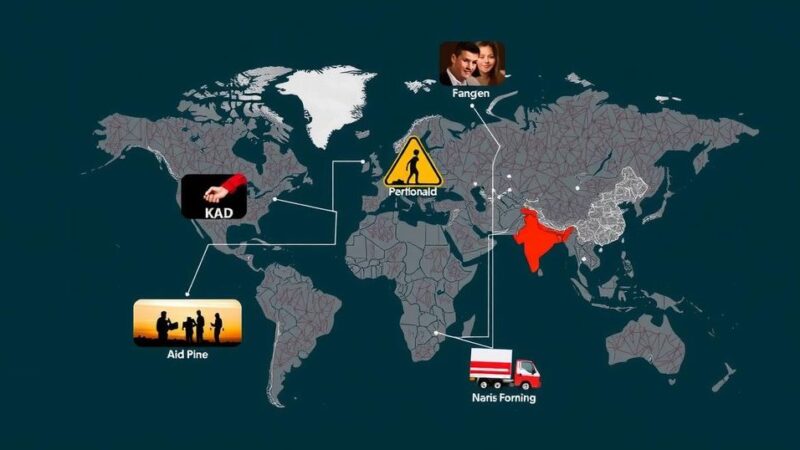Israel has conducted over 220 airstrikes in Syria over the past year, largely targeting Iranian-affiliated military assets and weapon depots. These attacks have resulted in significant casualties amid a backdrop of ongoing regional tensions. The Syrian government has condemned these actions, with limited direct military response, while reactions from the international community have been largely critical but ineffective in changing Israel’s approach.
Numerous assaults attributed to Israel against Syria have significantly escalated in recent years, particularly amid regional tensions. Recent airstrikes, such as an incident in Damascus that resulted in eleven fatalities, have underscored Israel’s ongoing military campaign within Syrian territory. While Israel has not publicly claimed responsibility for every attack, it has acknowledged conducting hundreds of such operations, primarily targeting Iranian-affiliated entities and weapon depots in Syria. Over the last year, Israel has executed over 220 airstrikes on Syrian territory, as reported by the Armed Conflict Location and Event Data (ACLED). At least 104 of these strikes have occurred since January 2023, claiming 296 lives, according to the Syrian Observatory for Human Rights (SOHR). The Israeli military has notably targeted key Iranian military assets, with one of the most impactful strikes occurring in April, when Israeli aircraft bombed an Iranian consular site in Damascus, resulting in the deaths of several high-ranking members of the Islamic Revolutionary Guard Corps (IRGC). In response to the assaults, the Syrian government has vehemently condemned Israel’s actions, yet it has largely refrained from direct retaliation, despite occasional rocket fire towards Israel, attributed mainly to Iranian-supported factions. Noteworthy is that during the broader regional conflicts that have emerged, Syria has maintained a posture of restraint, apparently avoiding escalation despite provocations. The international community’s reaction to these attacks has been muted. While several Arab nations and organizations like the League of Arab States have criticized Israel’s actions as violations of Syrian sovereignty, other powers, including Russia and China, have also expressed their objections, with Russian officials emphasizing the gravity of repeated violations and China insisting on the sanctity of diplomatic facilities. Israeli officials justify these incursions by claiming the necessity of neutralizing perceived Iranian threats, a rationale echoed in similar U.S. military operations against entities in Syria. Historically, Israeli military action in Syria has been a strategy employed for decades, experiencing a pronounced intensification since the onset of the Syrian civil conflict in 2011, with the most recent escalations occurring after the onset of the Gaza conflict in October 2023.
The complex and multifaceted relationship between Israel and Syria is characterized by decades of hostility and military engagements. Given Syria’s affiliation with Iran and its support for various resistance movements against Israel, the two nations have frequently found themselves at odds. The backdrop of the Syrian civil war has allowed Israel to engage in extensive military operations against Iranian and Hezbollah positions, which it perceives as immediate threats to its national security. The global context and regional alliances continue to play a pivotal role in shaping these confrontations, complicating international responses to the ongoing violence.
In conclusion, Israel’s military actions in Syria are part of a broader strategy to counter perceived threats from Iranian-backed groups. Despite widespread condemnation from the international community and regional actors for violating Syrian sovereignty, Israel remains resolute in its military operations, justified by the assertion of targeting hostile entities. The lack of substantial international consequences for these actions raises significant questions regarding sovereignty and the conduct of warfare in the region.
Original Source: www.aljazeera.com





